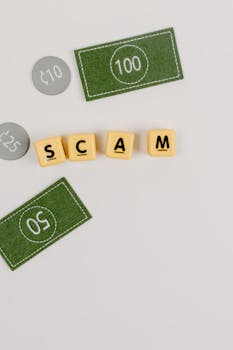You settle in for a gaming session, hoping to grab deals or earn a legendary item—then a tempting offer pops up. It looks real and urgent, but something feels off. Many gamers have seen this and ignored their gut, only to lose money, accounts, or both.
Gaming scams come in all flavors, from fake item sellers and giveaway bots to phishing links masked as game rewards. Targeting rookie and veteran players alike, these schemes siphon personal data or in-game assets. With in-game economies booming, vigilance matters more than ever.
This guide unpacks the specific traits of gaming scams, shows realistic examples, and arms you with step-by-step actions. Read on for clear, practical advice tailored to help you spot, sidestep, and report scams before trouble strikes.
Identifying Red Flags When Browsing Gaming Sites
Scammers plant traps on giveaway pages, forums, and storefronts. Look for strange URLs, awkward grammar, or requests for unusual logins. These warnings can save your game progress and wallet.
Read popups and ad offers carefully. Sites mimicking trusted brands often have subtle spelling errors, off-brand logos, or missing contact info. Spotting these tricks is your first defense.
Warning Sign: Unusual Web Addresses
Legitimate game companies use recognizable addresses. If you hover over a link and see odd spellings, lookalike characters, or extra words, steer clear immediately. Scammers rely on rushed clicks.
“EpicGams.com” or “steaamoffers.net” look convincing at a glance. Don’t type passwords or payment info into such sites. Save official links as browser bookmarks for quick comparison any time.
Bookmarking helps avoid rushed decisions. If you’re ever unsure, compare a link to a saved official one—never follow popups from chat or forum posts without checking.
Language Use and Broken Branding
Scam sites use bland, generic language like “amazing deal” or “guaranteed win.” Watch for misspellings in item names or sloppy translations on signup forms. Broken branding and low-quality logos scream trouble.
For example, a page promising, “Free 1000 Gems for All User” should make you pause. Authentic promotions use correct grammar, clear branding, and link to support or company policies.
When logos or images look blurry or stretched, it means the site could be an imitation. Stay clear and locate the company’s verified pages for real offers.
| Red Flag | Example Wording/Site | What to Check | Takeaway Action |
|---|---|---|---|
| Misspelled URLs | epicgams.com | Hover and compare | Bookmark official links |
| Grammar mistakes | “Win mony now!” offer | Read carefully | Avoid sharing info |
| Broken logos | Blurry launcher logo | Check site images | Leave and verify |
| No contact info | No Support page | Look for official contacts | Don’t engage |
| Popups for login | Popups in chat | If timely/urgent | Never enter credentials |
Avoiding Phishing Links in Game Chats and Forums
Players receive phishing links through private messages, forum DMs, or chatrooms. A scammer may pose as event staff or a friend, using message urgency or rewards to trigger a click.
Reading links out loud can help you spot strange phrasing or excess characters. Double-checking sender profiles for inconsistencies may reveal the scammer’s plan before you fall for it.
Scenario: The “Limited-Time Event” Trap
Imagine a message: “Join this exclusive event: bit.ly/gameprize. Only today!” The sudden deadline nudges you to act fast, making you skip verifying. Don’t rush. Search the event in your browser, not the provided link.
If a friend suddenly sends similar pitches, ask them directly on another platform—or in person—to confirm. Suppose they’re silent or confused. That means their account’s been hijacked.
- Refuse to click links from strangers. Even if it sounds authentic, scammers copy common event language.
- Inspect sender profiles for missing history or inconsistent usernames. Fraudsters cycle through accounts quickly to avoid detection.
- Use web search for event names. Type the event into a search engine instead of clicking—verified sites should rank high.
- Verify with official channels. For game events and prizes, only trust messages you see posted on the official news page.
- Scan suspicious links with URL checkers. Free online tools can reveal if a site is malicious before you risk your login.
A little skepticism about deadlines or urgent messages pays off. Breathe, slow down, and choose the search route instead of the click.
Mini-Checklist for Safer Link Handling
Keep passwords private, even if someone presents logical reasons. “Our tournament team needs your password to check eligibility” is a common script—don’t fall for it.
Flag accounts making requests for personal info. Use in-game reporting features to alert moderators immediately.
- Ignore requests for personal data, including login details or payment info.
- Block anyone making repeated requests after your refusal.
- Annotate scam messages in chat with “SCAM” to warn others.
- Review account activity weekly—catch breaches early.
- Change passwords after any strange interaction, as a precaution.
Each step reduces your exposure. Proactive reports and password hygiene keep your experience positive and your assets protected.
Spotting Fake Giveaways and Free Item Offers
Flashy banners boasting “free skins” or “exclusive crate codes” pull many players into scams. Most giveaways that ask for additional steps or login info are just traps.
Example: The Disappearing Prize
An ad says: “Claim your exclusive skin, follow these steps!” First, you’re asked to link your account, then take a survey, and finally enter payment details for “verification.” You never receive the prize and your details are compromised. Trust no offer requiring sensitive info.
On forums, scammers pose as community managers. They’ll use icons and tags that look official but slip up on responses: “All must fill details for reward disbursement!” Official reps don’t use such vague scripts. When in doubt, confirm via official channels before acting.
Fake giveaway scams have hallmarks: generic wording, poor logo quality, links that redirect, and requests for data. Even if dozens post “thank you,” these could be bots. If a reward exists, it should be immediate and require nothing more than your in-game name.
Realistic Do/Don’t: Reporting Scams
If you spot a scam, copy the username and offending link. Submit these details to platform moderators, clearly labeling it as “possible scam link” in your report. This concrete step assists in wider community protection and speeds moderator response.
Never confront scammers directly. They may threaten or try to phish further details by prolonging the interaction. Instead, detach, report, then notify friends using a quick warning phrase, “Don’t click, likely scam—reporting now.” It diffuses panic and prompts others to act safely.
After any report, change your password if you interacted with the scam. Multi-factor authentication (MFA) is an excellent backup; if setup guides make it tricky, ask trusted gaming friends for help walking through the process together.
Deciphering Scam Tactics in Virtual Currency Sales
In-game currencies have real world value, attracting scammers who promise discounts or “bulk” deals outside official shops. These sites may offer 20% off but vanish after payment—no coins, no recourse.
Compare two payment requests: one directs you to the official game wallet; another pushes for prepaid cards or gift codes sent via social chat. Only the former is safe. Prepaid code deals should trigger immediate caution—reputable platforms never require them from clients.
| Currency Offer | Source Type | Red Flag |
|---|---|---|
| Discounted gold packs | Unknown website | Demands payment via gift card |
| Social media seller | Individual DM | Pushes for direct payment outside platform |
| Event reward | Official store | No red flag if inside platform |
Stick to in-platform payment gateways. Even if a seller is recommended by multiple forum users, scammers sometimes coordinate deceptive upvotes to inflate legitimacy and push users quickly to transact unsafely.
Comparing In-Game Trading Safety with Third-Party Platforms
Trading within your game’s own marketplace resembles buying directly from a trusted store rather than a flea market. In-game systems add protection: automated escrow, verified items, and accessible dispute features you won’t find in third-party chats.
On external selling groups or chat boards, trades rely solely on trust—no safeguards, no recourse. One gamer recounted trading via a messaging app for an “ultra-rare” rifle skin, only to watch the seller disappear mid-transaction. By analogy, never hand over money to a stranger in a parking lot.
It’s easier to verify user reputations within a game. Built-in trading logs let you see who has positive exchanges and who’s only recently joined. When trading through Discord or Messenger, there’s no such reputation trail, so risk increases with every step taken outside the system.
If you meet a trader using tricky tactics—like sudden price drops, timed deals, or guilt-inducing messages—pause immediately. High pressure doesn’t mean high reward; it’s usually a scammer attempting to rush your decision.
Key Actions to Stay Secure While Gaming
- Turn on multi-factor authentication in your game accounts for a safety layer if passwords are leaked elsewhere.
- Use strong, unique passwords and change them quarterly; password managers can help automate this process.
- Verify official game news within the client, not through email or chat links—avoid arming scammers with your info.
- Bookmark the login pages of every game you play, to avoid mistyping addresses and landing on fake copies.
- Set chat filters to reduce DM spam. Reporting unsolicited messages strengthens automated scam detection in most games.
- Help friends learn the signs—sending two-second voice or text warnings in chat can save their accounts as well as yours.
Following this list builds habits that compound security benefits quickly. Gamers working together, sharing knowledge and responding fast, set up a protective network that limits scam reach.
Learning to trust your instincts, keeping tools updated, and making reports as second nature tightens the net around would-be scammers—and lets everyone enjoy gaming with fewer worries.
Tying It All Together: Building Safe Gaming Habits
Gaming scams prey on curiosity and excitement, but clear warning signs and proven tactics offer solid protection. Reading URLs, reporting urgent messages quickly, and checking offer details keep you a step ahead.
Staying aware of how scams change over time lets you spot subtle new twists—like fake mod downloads or “beta access” keys. Sharing experiences with friends builds a connected, skeptical gaming community.
Develop a habit of slowing down with any new offer, cross-checking it before you act. Bookmarking official sites and setting up two-factor authentication are practical, quick ways to strengthen your defenses.
The gaming world grows by the day, but your personal vigilance gives you the power to explore, compete, and trade with confidence. Stay sharp, stay curious, and play on securely.

